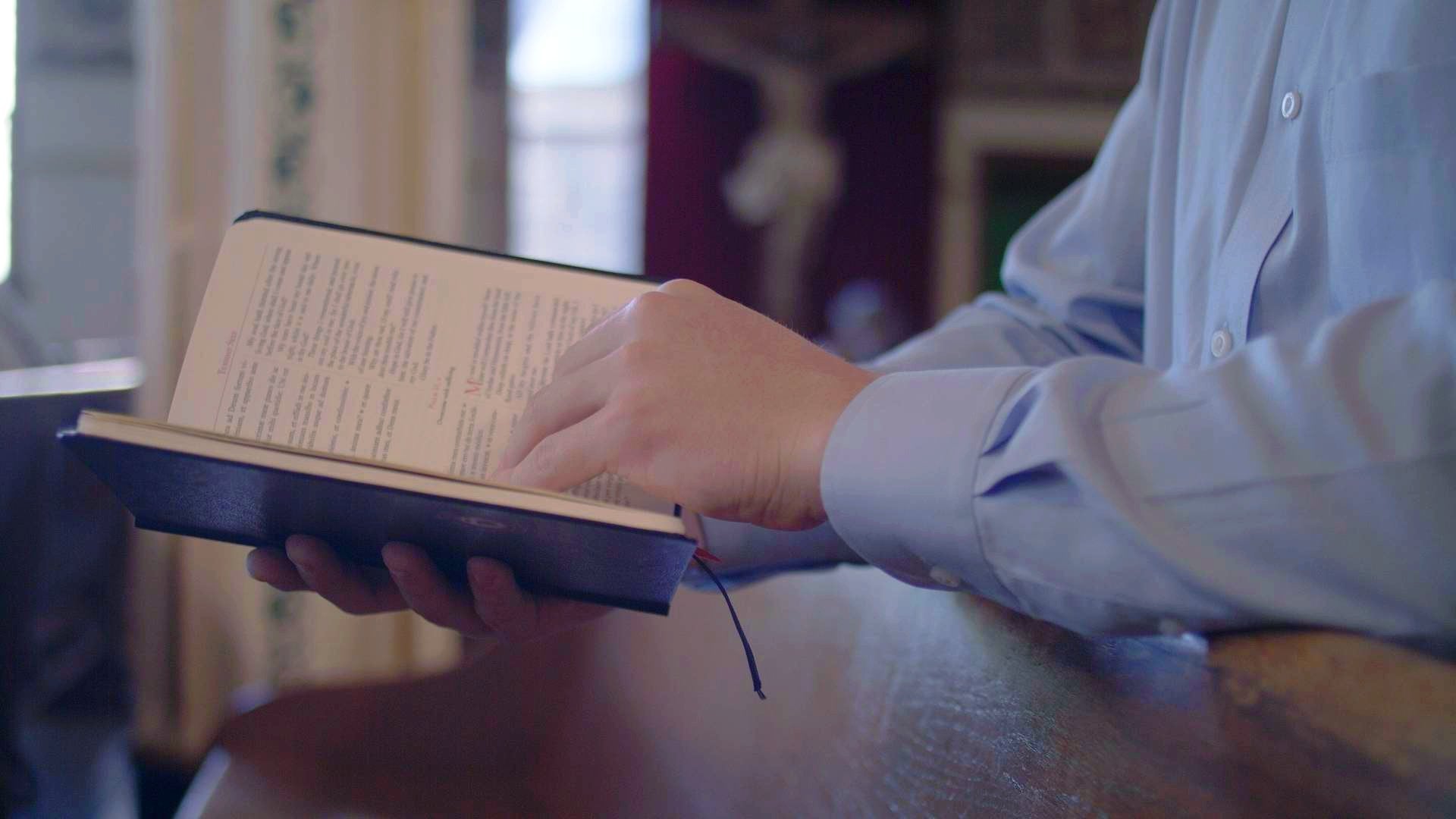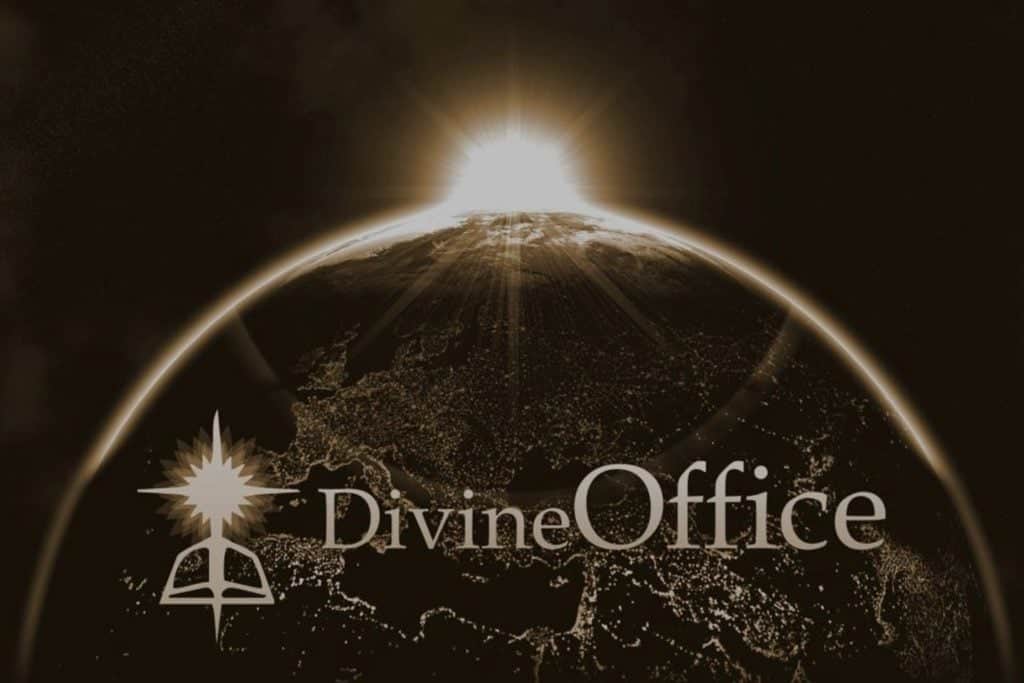

We know from a reading of the Acts, how the Church of Jerusalem in particular clung with the utmost tenacity and almost up to the last, to the Temple services which they had loved so long. The Old Law is but the shadow of the New, none the less, it seemed but natural to retain at least the framework of Jewish religious life, were it only to smooth the transition from the Synagogue to the Christian Church. It would have been all but impossible to improvise a new form of worship, complete and all of a piece, even had the Apostles wished to precipitate so radical a change. On the contrary, we are expressly told that they continued "daily, with one accord, in the Temple, "the only divergence from Jewish practice being this, that they "broke bread, from house to house, praising God. It is equally certain that the Apostles and early disciples of Christ did not, from the very outset, cut themselves adrift from the Synagogue. The Jews, we know, had their three sacrifices each day, viz., at dawn, in the middle of the day and in the late afternoon or evening. The observance of some public, or liturgical, forms of Prayer by the Church, is of Apostolic origin. We can only give some slight outline of the history of the formation of the Breviary. Already Alcuin, at the end of the eighth century, uses the word when speaking of a Book of Hours composed by him for the use of the Emperor Charlemagne. We know it as the entire collection, generally divided into four volumes, according to the four seasons of the year, of the complete pensum of our service to God, as distinct from the Missal, the Pontificale and Ritual, which contain the text of the Masses, the various rites of the Sacraments and so forth. Generally speaking, Breviarium is the same thing as our Ordo and even less, for it was simply a sheet upon which were written down some directions for the celebration of the Masses and the Psalmody. In the Middle Ages it often signifies the same thing as Comes, that is, a list of the extracts of the Gospels to be read in church in the course of the year. Benedict in his Rule, when he says that Abbas brevem teneat of all the tools belonging to the monastery. Originally the word "Breviarium" signifies a register or inventory. It is therefore a matter of supreme interest to all priests to have at least some general notions as to how the Breviary originated, grew and developed, until it acquired its present familiar form. How frequently it happens that, as we open the book, we are suddenly reminded of what befell us, perhaps years ago, because on that particular day maybe it was a day of joy, or else of sorrow we happened to say the very psalms, or prayers which are appointed for today.

Our Breviary is never laid aside for long it accompanies us on all our journeys its well-thumbed pages are the confidants of our daily thoughts. However, after the liturgical changes that were effected during the Second Vatican Council, the content and the hours were changed or, let’s say, realigned.We commonly speak of the divine office as the Breviary. Compline or Night Prayer (before retiring, – around 7 pm).Vespers or Evening Prayer (“at the lighting of the lamps” – around 6 pm).None or Mid-Afternoon Prayer (Ninth Hour – around 3 pm).

Sext or Midday Prayer (Sixth Hour – around 12 noon).Terce or Mid-Morning Prayer (Third Hour – around 9 am).Prime or Early Morning Prayer (First Hour – around 6 am).Previously, the Liturgy of the Hours comprised of eight canonical hours as postulated by St Benedict of Nursia in his Rule (Rule of St Benedict). In the Roman Catholic Church, the lay people are also encouraged, but not obligated, to observe the Liturgy of the Hours, together with the priests or other people, or even alone. The Morning Prayer has the Benedictus (the Canticle of Zechariah from Luke 1:68-79), while the Evening Prayer has the Magnificant (the Canticle of Mary from Luke 1:46-55).Īll bishops, priests, and deacons who plan to become priests are obligated to celebrate the Divine Office and many congregations urge their members to celebrate jointly as opposed to alone.

The Morning and Evening Prayers have a Gospel reading each. However, the dialogue is always held in God’s presence.Įach of the canonical hours contains selections from the Psalms. These dialogues range between a person and God, the Church and God, the Church and the world, or among the Church members. These prayers are found in the Breviary.ĭuring the Liturgy of the Hours, the faithful hold a meditative dialogue with God using scripture, Prayers, antiphons, and hymns. These are the daily prayers, prayed each day at the canonical hours of the Roman Catholic Church to sanctify the day with prayer. The Liturgy of the Hours is also called the Divine Office or the Work of God.


 0 kommentar(er)
0 kommentar(er)
